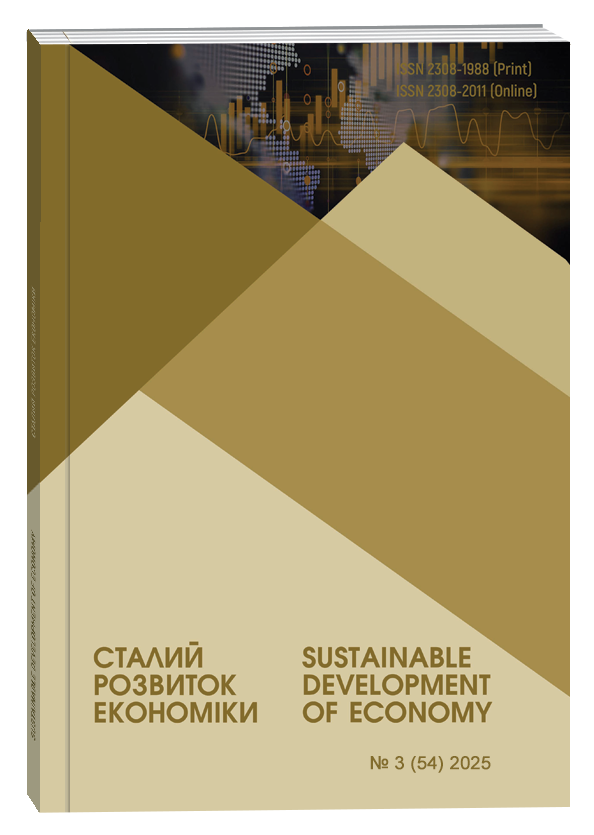DIGITAL FINANCE: FROM TRADITION TO INNOVATION
Abstract
In today’s world, digital transformation is reshaping the financial sector through technologies like artificial intelligence, blockchain, big data, cloud computing, and mobile platforms. These innovations enhance personalization, fraud detection, decision-making, and accessibility. Blockchain ensures secure, transparent transactions; big data enables predictive analytics; and mobile technology expands access to financial services, especially in underserved areas. Cloud infrastructure reduces IT costs and helps smaller firms compete. Digitalization brings reduced operational costs, greater convenience, and improved customer satisfaction. It supports financial inclusion by enabling users to access accounts, make payments, or apply for loans via mobile devices. Real-time monitoring and digital records enhance accountability and help combat fraud and money laundering. However, challenges remain. Cybersecurity is critical as financial data becomes a key target. Institutions must invest in protection and comply with data regulations. Regulatory uncertainty-especially regarding cryptocurrencies and decentralized finance (DeFi) poses risks. Digital inequality persists, with older adults, low-income populations, and rural communities often lacking access or digital skills, requiring inclusive strategies. Reliance on digital systems also brings systemic risks: outages or software failures can disrupt entire networks. FinTech firms are disrupting traditional banks with agile models like peer-to-peer lending, neobanks, and robo-advisors, pushing incumbents to adapt or collaborate. Central banks are exploring digital currencies to modernize payment systems. Looking ahead, emerging technologies such as biometrics, quantum computing, and IoT will further transform finance. Yet ethical concerns-data privacy, algorithmic fairness, and digital rights-must be addressed to ensure trust and equity. Financial education and digital literacy are vital for user readiness. Ultimately, digitalization’s success depends on inclusive access, strong cybersecurity, balanced regulation, and ethical use.
References
World Bank Group. Digital Financial Services: Challenges and Opportunities for Emerging Markets. Washington, 2022. URL: https://www.worldbank.org
Global FinTech, 2023. PwC, 2023. URL: https://www.pwc.com/gx/en/industries/financial-services/fintech.html
European Central Bank. Digital euro: Investigation phase report. Frankfurt am Main, 2023. URL: https://www.ecb.europa.eu
OECD. Digital Disruption in Banking and its Impact on Competition Paris: OECD, 2021. URL: https://www.oecd.org/daf/competition/digital-disruption-in-financial-markets.htm
Arner D. W., Barberis J., Buckley R. P. FinTech and RegTech in a Nutshell, and the Future in a Sandbox. Journal of Banking Regulation. 2017. Vol. 19, № 4. P. 1–14.
McKinsey & Company. The future of digital banking in Europe. McKinsey, 2022. URL: https://www.mckinsey.com
Gomber P., Koch J.-A., Siering M. Digital Finance and FinTech: Current Research and Future Research Directions. Journal of Business Economics. 2017. Vol. 87, № 5. P. 537–580.
IMF. Fintech: The Experience So Far. Washington: International Monetary Fund, 2022. URL: https://www.imf.org
Zetzsche D. A., Buckley R. P., Arner D. W., Barberis J. N. From FinTech to TechFin: The Regulatory Challenges of Data-Driven Finance. NYU Journal of Law & Business. 2020. Vol. 16, № 1. P. 1–68.
Arner D. W., Barberis J., Buckley R. P. The evolution of FinTech: A new post-crisis paradigm? Georgetown Journal of International Law. 2016. Vol. 16, № 3. Р. 5–12.
Chen M., Mao S., Liu Y. Big data: A survey. Mobile Networks and Applications. 2019. Vol. 23, № 3. Р. 1–4.
Tapscott D., Tapscott A. Blockchain revolution. D. Tapscott, A. Tapscott. Penguin. 2017. Vol. 14, № 2. Р. 12–14.
Böhme R., Christin N., Edelman B., Moore T. Bitcoin: Economics, technology, and governance. Journal of Economic Perspectives. 2015. Vol. 11, № 3. Р. 11–12.
Zetzsche D. A., Buckley R. P., Arner D. W., Barberis J. N. Decentralized finance. Journal of Financial Regulation. 2020. Vol. 8, № 12. Р. 10–11.


